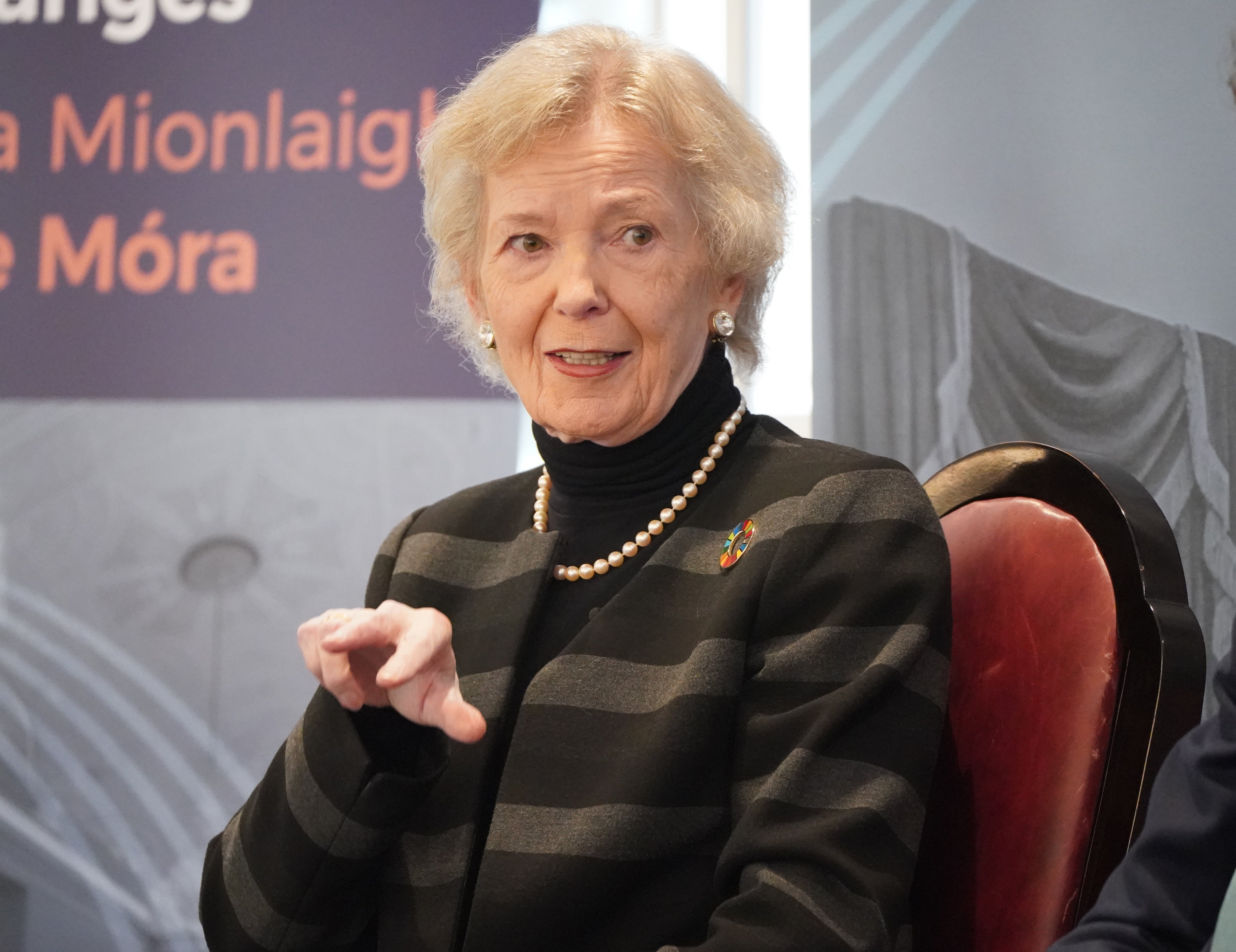Mary Robinson says climate crisis a ‘minority issue’ as Seanad marks centenary
She made the comments at an event to commemorate the centenary of Seanad Eireann.

Your support helps us to tell the story
From reproductive rights to climate change to Big Tech, The Independent is on the ground when the story is developing. Whether it's investigating the financials of Elon Musk's pro-Trump PAC or producing our latest documentary, 'The A Word', which shines a light on the American women fighting for reproductive rights, we know how important it is to parse out the facts from the messaging.
At such a critical moment in US history, we need reporters on the ground. Your donation allows us to keep sending journalists to speak to both sides of the story.
The Independent is trusted by Americans across the entire political spectrum. And unlike many other quality news outlets, we choose not to lock Americans out of our reporting and analysis with paywalls. We believe quality journalism should be available to everyone, paid for by those who can afford it.
Your support makes all the difference.Former president of Ireland Mary Robinson said the climate crisis is a “minority” issue, and called for the Seanad to play a role in bringing the issues into communities.
The former senator said that the climate crisis needs to become part of people’s every day mainstream life.
She made the comments at an event to commemorate the centenary of Seanad Eireann.
The Seanad Cathaoirleach Mark Daly was joined by the former president and Senator Davis Norris to mark the event.
Ms Robinson was 25-years-old when she became a member of the Seanad and was one of only six women who sat in the House in 1969.
Ms Robinson, an advocate for human rights and climate justice, said the Seanad could do far more to engage climate crisis issues.
“I think a minority issue in Ireland is the climate crisis.
“It’s still a minority issue.
“People don’t talk about it around the table, they don’t talk about it enough,” she added.
“The Seanad could do far more to engage on all of the issues, including retrofitting of houses, energy issues and how to get clean energy.
“We need transformative change in less than eight years to be in the right place for 2030 to have a safe world for the future.
“Climate has become specialist subject for specialists, it isn’t.
“It’s an issue for everyone.
It has to be far more part of our mainstream life in a crisis sense of needing to be transformative
“The Seanad could play a real role in bringing it to communities.
“It has to be far more part of our mainstream life in a crisis sense of needing to be transformative.”
Mr Daly said the Seanad was set up in the middle in Ireland’s civil war and was established to ensure the unionist minority had a place in the new Republic.
“The concept was to make sure new that the State established democratic principles and the Seanad was one of those,” he added.
“It was probably the most diverse group of politicians that we have ever had in that it had 20 Protestant members, as well as Jewish and Quaker members.
“It was about making sure unionist minority had a place in the new State and those who found themselves on the southern side of the border and were members of that community, had a place so that their voices could be heard in the state.
“That was one of the key elements around making sure the new Seanad was representative across the board and that’s why it had such a diverse group.
“That has transitioned now to other minority voices and communities.”
Senator David Norris, who has the longest continuous service in the Seanad, was often a sole voice on the minority issues he championed.
Mr Norris said his most significant moment in his career is changing the law on homosexuality.
“I think that increased the happiness for people and that is very important and people should be entitled to the enjoyment of life and not be restricted if they are not doing harm to other people,” he added.
Ms Robinson campaigned on a range of liberal issues, including the right of women to sit on juries.
She was instrumental in changing the law on family planning and the right to the legal availability of contraception.
Within weeks of tabling a Bill to change the law in accessing contraception in 1973, she received hate letters and was “denounced” by various bishops.
“There was a huge sense of somehow this was speaking about issue that no one wanted to talk about,” she added.
“Nobody wanted to talk about sex, no one wanted to talk about family planning.
“I got hate letters and was really effected by the volume of hate letters I was getting.
“I was denounced by various bishops and in particular by Archbishop McQuaid.
“He wrote letter to every diocese in Dublin parish that this measure would remain a curse upon the country.
“It wasn’t against the law to use a condom, but it was against the criminal law to either buy and sell condoms.”